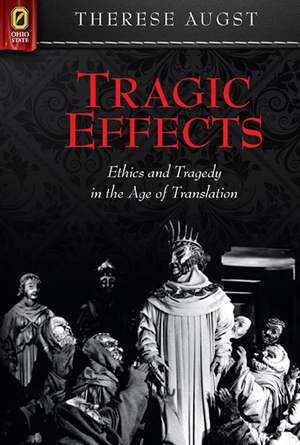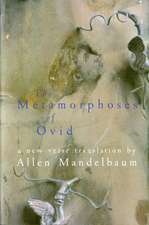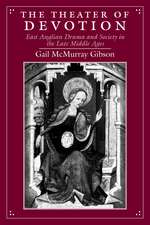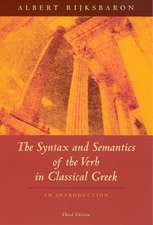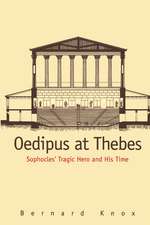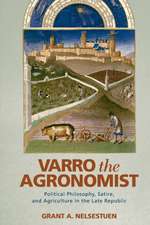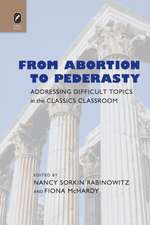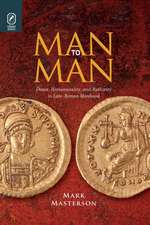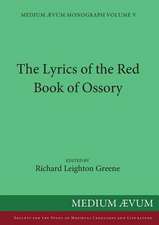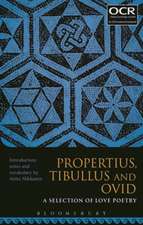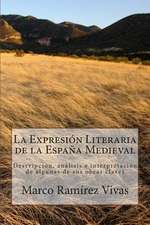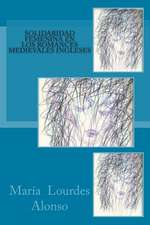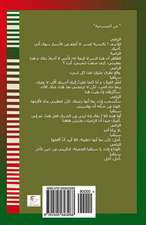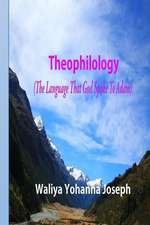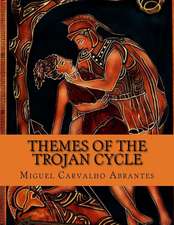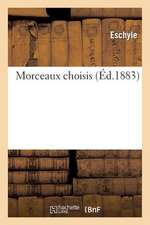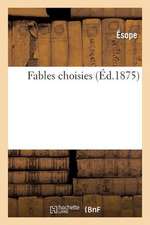Tragic Effects: Ethics and Tragedy in the Age of Translation: Classical Memories/Modern Identitie
Autor Therese Augsten Limba Engleză Paperback – 14 dec 2018
Tragic Effects: Ethics and Tragedy in the Age of Translation confronts the peculiar fascination with Greek tragedy as it shapes the German intellectual tradition, with particular focus on the often controversial practice of translating the Greeks. Whereas the tradition of emulating classical ideals in German intellectual life has generally emerged from the impulse to identify with models, the challenge of translating the Greeks underscores the linguistic and historical discontinuities inherent in the recourse to ancient material and inscribes that experience of disruption as fundamental to modernity.
Friedrich Hölderlin’s translations are a case in point. Regarded in his own time as the work of a madman, his renditions of Sophoclean tragedy intensify dramatic effect with the unsettling experience of familiar language slipping its moorings. His attention to marking the distances between ancient source text and modern translation has granted his Oedipus and Antigone a distinct longevity as objects of discussion, adaptation, and even retranslation. Cited by Walter Benjamin, Martin Heidegger, Bertolt Brecht, and others, Hölderlin’s Sophocles project follows a path both marked by various contexts and tinged by persistent quandaries of untranslatability.
Tragedy has long functioned as a cornerstone for questions about ethical life. By placing emphasis on processes of translation and adaptation, however, Tragic Effects approaches the question of ethics from a perspective informed by recent discourse in translation studies. Reconstructing an ancient text in this context requires negotiating the difficult tension between comprehending the distant past and preserving its radical singularity.
Friedrich Hölderlin’s translations are a case in point. Regarded in his own time as the work of a madman, his renditions of Sophoclean tragedy intensify dramatic effect with the unsettling experience of familiar language slipping its moorings. His attention to marking the distances between ancient source text and modern translation has granted his Oedipus and Antigone a distinct longevity as objects of discussion, adaptation, and even retranslation. Cited by Walter Benjamin, Martin Heidegger, Bertolt Brecht, and others, Hölderlin’s Sophocles project follows a path both marked by various contexts and tinged by persistent quandaries of untranslatability.
Tragedy has long functioned as a cornerstone for questions about ethical life. By placing emphasis on processes of translation and adaptation, however, Tragic Effects approaches the question of ethics from a perspective informed by recent discourse in translation studies. Reconstructing an ancient text in this context requires negotiating the difficult tension between comprehending the distant past and preserving its radical singularity.
Preț: 335.95 lei
Nou
Puncte Express: 504
Preț estimativ în valută:
64.28€ • 66.99$ • 53.23£
64.28€ • 66.99$ • 53.23£
Carte tipărită la comandă
Livrare economică 31 martie-05 aprilie
Preluare comenzi: 021 569.72.76
Specificații
ISBN-13: 9780814255049
ISBN-10: 0814255043
Pagini: 312
Dimensiuni: 152 x 229 x 20 mm
Greutate: 0.42 kg
Ediția:1
Editura: Ohio State University Press
Colecția Ohio State University Press
Seria Classical Memories/Modern Identitie
ISBN-10: 0814255043
Pagini: 312
Dimensiuni: 152 x 229 x 20 mm
Greutate: 0.42 kg
Ediția:1
Editura: Ohio State University Press
Colecția Ohio State University Press
Seria Classical Memories/Modern Identitie
Recenzii
“Very well written, lucid, and persuasive, the book is a pleasure to read from beginning to end. The author knows that writing is a matter of capturing the reader's attention and holding it.”
—Gregory Jusdanis, Distinguished Humanities Professor, department of Greek and Latin, The Ohio State University
Notă biografică
Therese Augst is assistant professor of German Studies at Lewis & Clark College in Portland, Oregon.
Cuprins
Introduction—Thinking in Translation
Chapter One—Contexts: Why Translate? Why Study the Greeks?
Chapter Two—Distancing: Oedipal Solitude
Chapter Three—Difference Becomes Antigone
Chapter Four—The Translator’s Courage
Chapter Five—Out of Tune? Heidegger on Translation
Chapter Six—Ruined Theater: Adaptation and Responsibility in Brecht’s Antigonemodell
Conclusion Re-writing
Chapter One—Contexts: Why Translate? Why Study the Greeks?
Chapter Two—Distancing: Oedipal Solitude
Chapter Three—Difference Becomes Antigone
Chapter Four—The Translator’s Courage
Chapter Five—Out of Tune? Heidegger on Translation
Chapter Six—Ruined Theater: Adaptation and Responsibility in Brecht’s Antigonemodell
Conclusion Re-writing
Descriere
Confronts the peculiar fascination with Greek tragedy as it shapes the German intellectual tradition, with particular focus on the often controversial practice of translating the Greeks.
